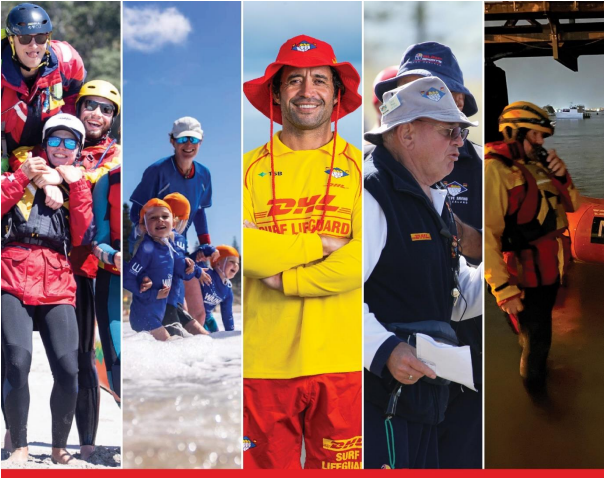Research
A library of research articles from other organisations


Migrant & Ethnic Communities
A National Strategy to Support Volunteering for Recent Migrants
This strategy outlines the guiding principles and strategic initiatives for achieving the vision for recent migrant volunteering. VNZ will continue to lead the sector to champion meaningful opportunities to engage in inclusive, ethical, and impactful volunteering for recent migrants. At the heart of the strategy’s vision is the concept of whanaungatanga – kinship, connection, relationships, and reciprocity.

Overton, John; Stupples, Polly; Clowes, Alice. Victoria University of Wellington, 2016. This article illustrates the complexities inherent in the relationship between volunteering and positive ageing and show how volunteering was used by the participants of the study, as a means to resist and challenge negative stereotypes and representations of ageing. There was a fine balance between the promotion of volunteering as one of a multitude of ways in which older people can participate in their communities and overstating the benefits of volunteering to individuals and their communities without revealing the potential challenges.

Jan 2025: The priorities of volunteers have shifted, and volunteer stress and burnout are significant challenges for Surf Life Saving New Zealand. If the organisation wants to start addressing these issues and rebuild its capability, it must act to meet this shift.

Young People & Volunteering
Building community resilience through youth volunteering: towards a new model (2022)
This paper presents the results of a project that sought to understand the barriers to, and incentives for, youth volunteering at three regional local government areas in South Australia. Culture, sports and youth clubs emerged as important hubs for youth activity and potential volunteer recruitment. We suggest a new model for regional youth volunteering that prioritizes events, partnerships and social media, as well as using existing institutions as bridging organizations.

Good Practice
Canadian Code for Volunteer Involvement (CCVI)
Volunteer Canada, 2017. The CCVI is a framework for involving volunteers at all levels of an organisation. The report covers volunteers working in leadership, direct service and virtual roles and highlights standards of practice as well as ways to successfully implement the code.

Rewi, Leila-Dawn; Hastie, Jeanette Louise. (2021). Aotearoa New Zealand Social Work, Volume 33, Number 3. This research explores Ngati Manawa’s volunteer efforts following the Covid-19 pandemic of March 2020 in Murupara. The research explores the adaption of tīkanga and social relations to fit the protocol during the first wave of COVID-19.

Corporate Volunteering
Corporate Volunteering
Corporate volunteering provides your company with the opportunity to develop staff skills, build teams and bolster your reputation within your local community. This article- will give you the necessary tools to develop your corporate volunteering programme.

Corporate Volunteering
Corporate Volunteering for a Post-Pandemic World
IAVE’s global corporate volunteering research project is built on in-depth examinations of the realities, trends and best practices that shape the field, as seen through the eyes of those directly responsible for managing volunteer programs.

Migrant & Ethnic Communities
Cultural Connections – Migrants and Volunteering in New Zealand
Chuah, Eric. Cultural Connections, 2018. In this document, Cultural Connections, a multicultural research and consulting firm, undertook a quantitative survey with migrant communities through their networks to help VNZ understand how new migrants engage with volunteering. With a better understanding of the issue and opportunities it is possible to develop a programme of work that is more likely to have positive results.

Shandra, Carrie. Social Science Research, 2017. People with disabilities in the United States experience lower levels of social integration than people without disabilities. This study uses data from the 2009–2015 Volunteer Supplement of the Current Population Survey to evaluate how working-aged adults with sensory disabilities, cognitive disabilities, physical disabilities, or multiple disabilities access, participate in, and maintain volunteer roles.

Good Practice
Episodic Volunteering
Family & Community Services, NSW Government, 2022 A review of relevant literature and evidence-based recommendations regarding best practice in the governance of flexible, time-limited episodic volunteer programmes.

Conservation & Environment
Exploring the Co-Benefits of Environmental Volunteering for Human and Planetary Health Promotion
Patrick, Rebecca, et al. Health Promotion Journal of Australia, vol. 33, no. 1, 2022, pp. 57–67 This paper presents the findings of a New South Wales (NSW) study of peoples’ motivations for, and co- benefits of, environmental volunteering.

Fujiwara, Daniel; Lawton, Ricky; Watt, Will. Sport + Recreation Alliance, June 2018. This research report provides an evidence-based guide for organisations working with volunteers. It explores the benefits associated with volunteering, the reasons and motivations that compel people to volunteer and the barriers and obstacles that prevent organisations from attracting more volunteers. It also offers messaging techniques that can be used to help recruit and retain volunteers, effectively.

Women in Sport (UK), 2017. This research focuses on gender discrimination within sports volunteering and sets out best practice solutions to counter this disparity.

Andersen, Ditte, et al, The Sociological Review (Keele), vol. 70, no. 1, 2022, pp. 39–56, This article conceptualises the idea of ‘imposed volunteering’ as a process that enforces and shapes societal caring arrangements. Women, along with ethnic and working-class minorities, are pinpointed as being disproportionately given the care work responsibilities, which worsens social expectations and inequalities. This article pushes for an equal distribution of care work responsibilities.

Emergency Management
Integrating volunteering cultures in New Zealand’s multi-hazard environment
Australian Institute for Disaster Resilience, 2020. This research explores different approaches to support informal volunteering and how it contributes to rural communities in New Zealand. In doing so, the practical aspects are considered to integrate informal and formal volunteers and to identify lessons for inclusion.
